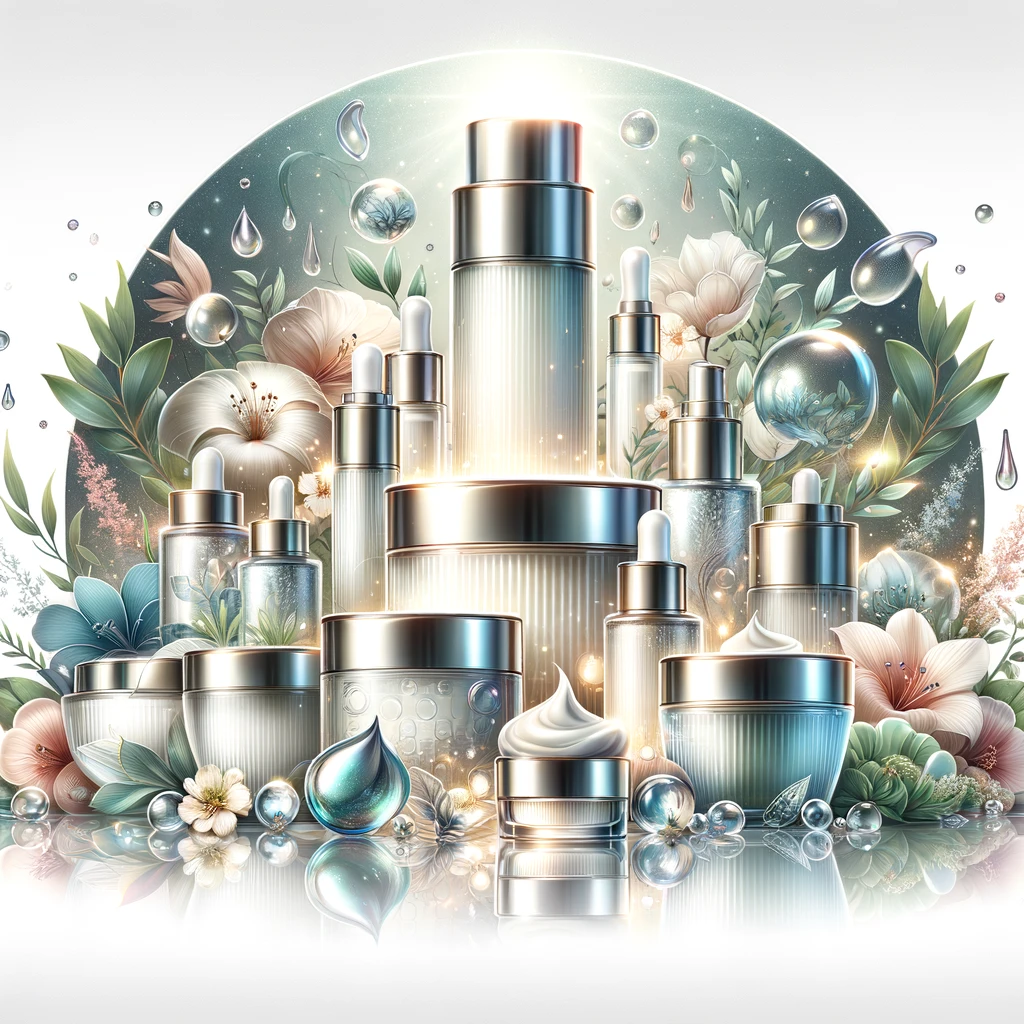Table Of Contents
- Summary
- Introduction
- Acne During Pregnancy: Understanding the Hormonal High Tide
- Safe Skincare: Addressing Pregnancy Acne without Harming Baby
- Dietary Adjustments to Alleviate Acne in Expecting Mothers
- When to Seek Medical Advice: Treating Stubborn Pregnancy Acne
- Conclusion
- FAQ's

Key Takeaways
- Acne during pregnancy is primarily due to increased hormonal activity, leading to overstimulation of sebaceous glands and potential outbreaks.
- When addressing pregnancy acne, it's crucial to prioritize the safety of both the mother and the baby by opting for gentle, pregnancy-safe skincare products.
- Dietary adjustments, including consuming a well-balanced diet and staying hydrated, can contribute to alleviating skin issues during pregnancy.
- Seek medical advice if experiencing persistent or severe pregnancy acne to ensure effective management while prioritizing maternal and fetal health.
Introduction
Are you experiencing unexpected acne breakouts during your pregnancy? Understanding the hormonal high tide behind pregnancy-related acne is key to managing this common concern. The surge in hormonal activity, particularly the increased production of androgen hormones, can lead to overstimulation of the sebaceous glands, resulting in oily skin and potential acne outbreaks. But fear not, as this blog post will equip you with the knowledge to effectively address and alleviate pregnancy acne without compromising your health or the well-being of your baby. From safe skincare practices to dietary adjustments and knowing when to seek medical advice, this comprehensive guide will provide you with the insights you need to navigate pregnancy-related acne with confidence. Stay informed and empowered as we delve into the intricacies of acne during pregnancy.
Acne During Pregnancy: Understanding the Hormonal High Tide
For many expectant mothers, the joy and excitement of pregnancy can sometimes be accompanied by unwelcome changes in the skin, including acne. The surge in hormonal activity during pregnancy is a major culprit behind this skin condition. The increased production of androgen hormones, such as testosterone, can lead to overstimulation of the sebaceous glands, resulting in oily skin and potential acne outbreaks.
These hormonal changes can cause an imbalance, leading to the development of various types of acne, including whiteheads, blackheads, and even cystic acne. Pregnancy-related acne can be distressing and uncomfortable for many women, but it's important to understand that it is a common occurrence and often resolves after childbirth as hormone levels stabilize.
While the exact cause of pregnancy-related acne may vary from person to person, hormonal fluctuations play a significant role. It's essential for expecting mothers to understand the underlying hormonal changes and their impact on the skin in order to effectively manage and alleviate pregnancy acne. Consulting with a dermatologist or healthcare provider can provide tailored advice and safe treatment options to address acne during pregnancy while ensuring the well-being of both the mother and the baby.

Safe Skincare: Addressing Pregnancy Acne without Harming Baby
When dealing with acne during pregnancy, it's crucial to prioritize the safety of both the mother and the baby. Opting for gentle, pregnancy-safe skincare products is essential to address acne without exposing the developing fetus to potentially harmful chemicals.
Expecting mothers should seek non-comedogenic products that are free from retinoids, salicylic acid, and other harsh ingredients commonly found in acne treatments. Instead, incorporating gentle cleansers, oil-free moisturizers, and non-irritating topical treatments can help manage pregnancy acne without compromising maternal or fetal health.
It's important to note that hormonal changes during pregnancy can lead to an increase in acne for many women. This can be frustrating, but it's essential to approach treatment in a safe and cautious manner. Consulting with healthcare professionals, such as dermatologists or obstetricians, can provide personalized recommendations for managing pregnancy acne without risking the health of the mother or the baby. Additionally, maintaining a healthy skincare routine, staying hydrated, and following a balanced diet can contribute to overall skin wellness during this time.
Ultimately, prioritizing safe skincare during pregnancy is crucial for addressing acne while safeguarding the well-being of both the mother and the developing baby.
Dietary Adjustments to Alleviate Acne in Expecting Mothers
Managing pregnancy-related acne involves not only skincare but also paying attention to dietary adjustments. A well-balanced diet is essential for expecting mothers to alleviate skin issues during this phase. Incorporating foods rich in essential nutrients, such as vitamin A, vitamin E, and omega-3 fatty acids, can contribute to supporting skin health and reducing the severity of acne outbreaks.
Furthermore, staying hydrated is crucial for overall skin health. It helps in regulating hormonal fluctuations, which, in turn, can potentially lessen the occurrence of pregnancy acne. Expecting mothers should also consider minimizing the consumption of high-glycemic index foods. These foods can lead to rapid spikes in blood sugar levels, which may exacerbate acne problems. By making mindful dietary choices, expecting mothers can proactively address acne concerns while promoting overall well-being.
Here are some dietary adjustments that may help alleviate acne during pregnancy:
- Incorporate vitamin-rich foods such as carrots, sweet potatoes, and spinach for vitamin A.
- Include nuts, seeds, and spinach for sources of vitamin E.
- Consume sources of omega-3 fatty acids like flaxseeds, chia seeds, and fatty fish.
- Drink an adequate amount of water throughout the day to stay hydrated.
- Avoid or limit the intake of high-glycemic index foods such as white bread, sugary snacks, and processed breakfast cereals.
When to Seek Medical Advice: Treating Stubborn Pregnancy Acne
Dealing with acne during pregnancy can be challenging, especially when it becomes stubborn and persistent. While making lifestyle adjustments and practicing gentle skincare can help manage mild to moderate pregnancy acne, severe cases may necessitate medical intervention. It's important for expecting mothers to be aware of when to seek medical advice for treating stubborn pregnancy acne.
If you notice persistent cystic acne or find that over-the-counter remedies are not providing the expected improvement, it's crucial to consult your healthcare provider. They can provide personalized guidance and recommend safe and effective treatment options tailored to your specific needs and the stage of your pregnancy. Seeking professional medical advice is essential to ensure the well-being of both you and your baby while addressing the challenges of pregnancy-related acne.
Remember, acne during pregnancy is a common occurrence and seeking medical advice does not indicate any failure on your part. Your healthcare provider can offer valuable support and expertise to help you manage and alleviate stubborn pregnancy acne, allowing you to fully enjoy this extraordinary journey of motherhood.
Conclusion
Understanding the hormonal fluctuations during pregnancy is key to managing and alleviating acne effectively. Prioritizing the safety of both the mother and the baby, opting for gentle, pregnancy-safe skincare products is crucial. Additionally, making dietary adjustments by consuming a well-balanced diet and staying hydrated can contribute to reducing the severity of acne outbreaks. While mild to moderate acne can often be managed with lifestyle adjustments, persistent or severe cases may require medical intervention. It's essential for expecting mothers to seek timely medical advice if over-the-counter remedies fail to yield improvement. Stay informed, stay safe, and prioritize your well-being and that of your little one. Feel free to share your experiences and tips for managing pregnancy-related acne in the comments below.
Take care of yourself and your baby, and remember, you're not alone in this journey.
FAQs
Q1: Can I get acne during pregnancy?
Yes, it's common for women to experience acne during pregnancy due to hormonal changes.
Q2: How can I treat acne during pregnancy?
Avoiding harsh chemicals and opting for gentle, pregnancy-safe skincare products can help. Also, consulting a dermatologist is a good idea.
Q3: Is it safe to use acne medication during pregnancy?
It's best to consult with your doctor before using any acne medication during pregnancy to ensure it's safe for both you and your baby.



